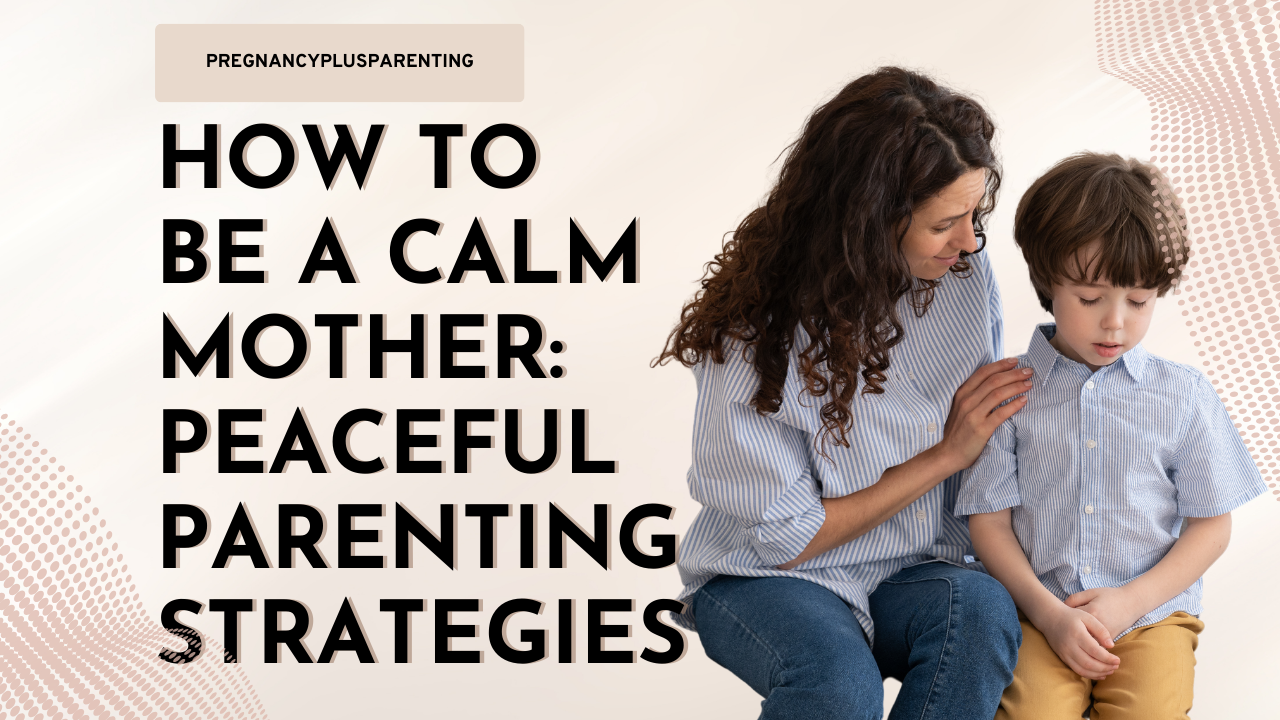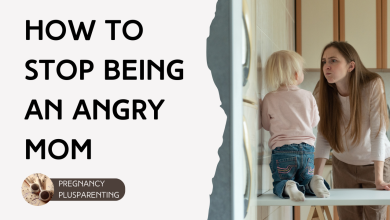How To Be A Calm Mother: Peaceful Parenting Strategies
Motherhood is a beautiful journey, but let’s face it—it can also be chaotic, overwhelming, and downright stressful. Staying calm amidst the whirlwind of tantrums, sleepless nights, and endless to-do lists is no easy feat. However, cultivating a sense of calm is not just beneficial for you; it’s transformative for your child, too. Let’s explore how you can become a calm mom through peaceful parenting strategies.
Understanding Calm Parenting
What is Calm Parenting?
Calm parenting is an approach where parents consciously choose to respond to their child’s behaviors and challenges with patience and understanding instead of frustration or anger. It’s about creating a supportive environment where everyone feels heard and valued.
Benefits for You and Your Child
When you parent calmly, you’re fostering a sense of security for your child. It enhances their emotional intelligence, strengthens your bond, and contributes to their overall well-being. For moms, it reduces stress and boosts confidence in handling parenting challenges.

Identifying Triggers
Common Stressors for Moms
Every mom has her triggers—whether it’s a messy house, sibling squabbles, or feeling unappreciated. Identifying these stressors is the first step toward managing them effectively.
How to Recognize Your Triggers
Take note of moments when your patience wears thin. Journaling or reflecting at the end of the day can help you pinpoint patterns and address them proactively.

The Science of Stress and Parenting
Effects of Stress on Parenting
Stress clouds judgment, making it harder to stay empathetic and patient. Chronic stress can lead to burnout, affecting both your mental and physical health.
How Calmness Positively Influences Brain Development in Children
Research shows that calm interactions help develop your child’s brain, fostering better emotional regulation and problem-solving skills.
Managing Stress with Self-Care
Prioritizing Your Mental and Physical Health
You can’t pour from an empty cup. Prioritize sleep, hydration, and nutritious meals. Regular exercise, even a short walk, can work wonders for your mood.
Small Self-Care Rituals That Make a Difference
Try starting your day with a few minutes of meditation or winding down at night with a warm bath. Small, intentional acts of self-care can recharge your batteries.

Setting Realistic Expectations
Avoiding the Supermom Myth
You don’t have to do it all to be a good mom. It’s okay to ask for help or let go of non-essential tasks.
Accepting Imperfections in Yourself and Your Child
Perfection is an illusion. Embrace mistakes as opportunities to grow and learn together.
Practical Strategies to Stay Calm
Deep Breathing Techniques
When frustration builds up, take a moment to breathe deeply. Inhale for four counts, hold for four, and exhale for four. This simple exercise can reset your nervous system.

The Power of Mindfulness in Parenting
Mindfulness helps you stay present, focusing on the moment rather than worrying about the past or future. Practice it during daily interactions with your child.
Creating a Calm Environment
Decluttering Your Space
A clutter-free space promotes a clutter-free mind. Organize your home to minimize chaos.
Setting a Peaceful Routine
Consistency brings calmness. Create predictable routines for meals, bedtime, and playtime.

Effective Communication with Children
Listening Actively
Active listening shows your child they’re valued. Repeat what they say to confirm understanding and validate their feelings.
Using Positive Language
Replace “don’t do that” with “let’s try this instead.” Positive language encourages cooperation and minimizes conflict.
Teaching Emotional Regulation
Modeling Calm Behavior
Children learn by watching you. Demonstrate how to stay calm during tough situations, and they’ll follow suit.
Helping Your Child Handle Big Emotions
Teach your child to name their feelings and guide them in finding healthy ways to express them.
Building a Support System
Reaching Out to Friends and Family
Don’t hesitate to lean on loved ones for help or advice. Parenting takes a village, after all.
The Role of Parenting Groups and Communities
Joining a parenting group can provide emotional support and practical tips from others who understand your struggles.
Handling Difficult Moments
Steps to Take When You Feel Overwhelmed
Pause, breathe, and remind yourself that this moment will pass. Taking a short break can help you regain perspective.
Turning Tantrums into Teachable Moments
Instead of reacting to a tantrum, use it as an opportunity to teach your child about emotions and boundaries.
Celebrating Small Wins
Why Every Effort Counts
Every time you choose patience over anger, you’re making progress. Celebrate these moments as victories.
Reflecting on Progress as a Mom
Take time to appreciate how far you’ve come. Parenting is a journey, not a destination.
Building Long-Term Habits
Staying Consistent with Peaceful Parenting
Consistency is key. Keep practicing calmness, even on tough days.
Making Calmness a Family Value
Encourage the whole family to embrace patience and understanding as core values.
Conclusion
Becoming a calm mom doesn’t mean never losing your temper—it means striving for balance and learning to respond with grace. By adopting peaceful parenting strategies, you’re not just nurturing your child; you’re nurturing yourself, too. Embrace the journey with patience and love.






